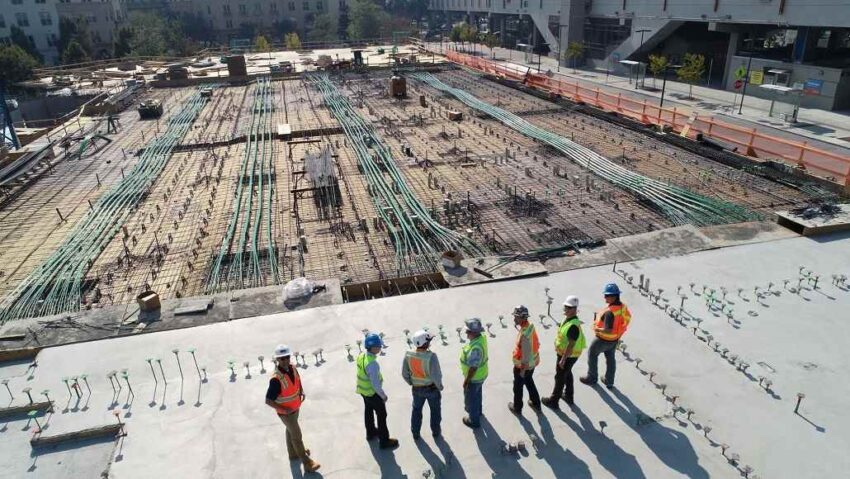When you’ve labored in development, you’ve in all probability run right into a blueprint that appeared nice on paper till you bought to the positioning and realized half of it didn’t match actuality. Possibly the soil wasn’t what you anticipated, or a beforehand “cleared” space was residence to a forgotten utility line. It’s the sort of stuff that may stall progress and burn budgets.
What if these sudden occasions might be anticipated? That is the function of geospatial intelligence. It goes past mere mapping; it’s about making knowledgeable selections, accelerating processes, and in the end connecting the workplace with the sphere.
The Energy Shift: Geospatial Intelligence Steps Up
That’s the place trendy planning instruments make a distinction. By incorporating geospatial discipline information assortment capabilities into the early levels of a undertaking, groups achieve a dwell view of the land — what’s there, what’s beneath it, and what might turn out to be an issue. That sort of perception isn’t simply good to have; it’s the way you keep away from ripping up concrete two weeks after pouring it.
There’s no purpose to hunt somebody down for a hazy web site shot that raises extra questions than it does solutions. You’ll be able to see what’s taking place on the bottom immediately and clearly, due to real-time photographs linked to specific GPS coordinates. No uncertainty, no guesswork. Figuring out potential points, corresponding to an unstable slope or poor drainage, takes minutes, not days. That kind of readability quickens decision-making for everybody concerned, whether or not it’s an engineer certifying the plan, a surveyor confirming elevations, or a contractor on-site. No person likes to approve something that must be redone later.
Past the Map: What Actual-Time Appears Like on Web site
Right here’s the distinction between static information and dwell updates: it’s like checking a climate app versus sticking your hand out the window.
Actual-time geospatial instruments enable crews to feed updates immediately into centralized platforms. One discipline tech with a pill can log a soil situation, snap a geotagged picture, and have planners reply inside minutes, not days.
A contractor in Colorado not too long ago prevented a complete week’s delay when up to date topography information revealed a buried drainage line simply in time. That’s not magic. That’s good coordination powered by linked information.
Changing the Outdated Guesswork with Sensible Certainty
These days of taking a look at a map from ten years in the past and hoping for one of the best are behind us. With new, location-specific intelligence, groups can lower out the guesswork.
Sudden rock beds? You already knew. Regulatory pink zones? You prevented them within the design. With the precise tech in place, planners can reply the robust questions earlier than the backhoe even begins.
This isn’t only a luxurious for big-budget companies. Smaller operations are selecting it up, too, as a result of dropping three days to a shock pipeline isn’t “small” in any respect when each hour counts.
From Planning to Permits: Greater than Only a Survey
Consider geospatial information as your undertaking’s paper path — besides far more correct and fewer prone to be misplaced in somebody’s inbox.
When making use of for permits or proving environmental compliance, clear geospatial information make the method simpler. Zoning officers need documentation? You’ve bought geotagged visuals and time-stamped logs. Environmental issues? Your web site information already reveals low-impact zones.
With correct visuals and reliable information, stakeholder conferences not really feel like interrogations, however extra like partnerships. That sort of belief saves time and complications.
What’s Coming Subsequent? The Street Forward for Building Planning
The longer term’s not slowing down. AI is already analyzing patterns in spatial information to forecast danger zones. Machine studying helps determine issues that human planners would possibly miss, corresponding to erosion threats or shifting soil composition.
Quickly, predictive planning gained’t be a bonus function. It’ll be anticipated. And people nonetheless working from static PDFs? They’ll be scrambling to catch up.

Ultimate Ideas: The Instruments Are Right here. Are You Utilizing Them But?
Considerate planning begins lengthy earlier than the bottom breaks. And geospatial intelligence isn’t a development. It’s the brand new basis.
Whether or not you’re managing a high-rise or a municipal street, the instruments are prepared that can assist you plan with confidence, not crossed fingers. The one query left is: Are you continue to guessing, or are you constructing with certainty?







